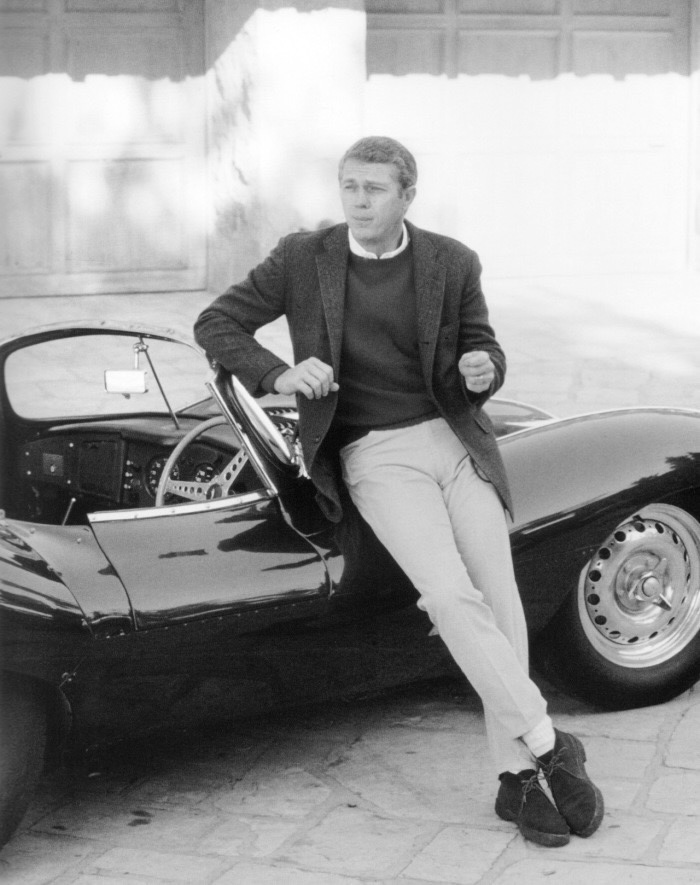
Long before certain automobiles made sure you were someone special, he already was.
Manufacture anything with wheels, you would want Steve McQueen as your Brand Ambassador. Gone since 1980, his image lingers, and men from all generations still know a good bit about him, and nearly all still acknowledge McQueen as the king of cool.
I thought I new a great deal about McQueen. I’d seen all of his movies growing up, but the book, McQueen’s Machines: The Cars and Bikes of a Hollywood Icon, brought new life and wonderful photographs as to what he owned, drove and crashed around the world. Two things became apparent as I read McQueens Machines; first how diverse his taste in cars and bike were. He bought what he thought he could beat the hell out of and get away with it on the roads of Los Angeles.
Secondly, how seldom studios would have to use a stunt double, and then for just the ridiculously scary, crazy-dangerous driving that his contract simply wouldn’t allow. Bud Ekins, one of Hollywood’s best stunt drivers, did duty as his stunt driving double for some of the stuff that the studios refused to let him do, like the famous chase scene from Bullitt, and the motorcycle jump in The Great Escape. but mostly it was Steve, letting it all hang out. From The Great Escape, to Le Mans, the original (scroll down in the Manx post to the snippet of his Corvair-powered Manx in the movie) Thomas Crown Affair, Steve McQueen was an incredible driver of things mechanical, and this book offers a glimpse of the over 100 motorcycles and classic and exotic cars he owned.


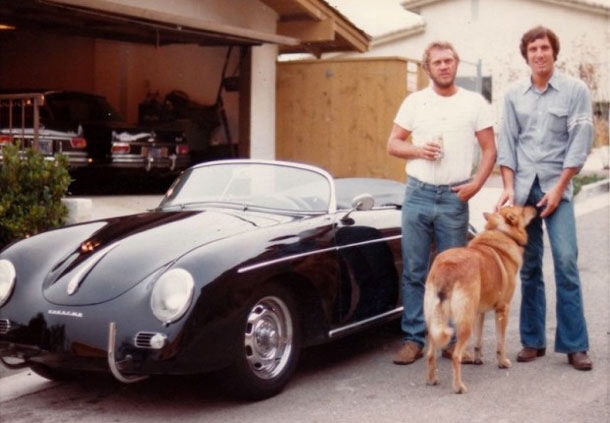
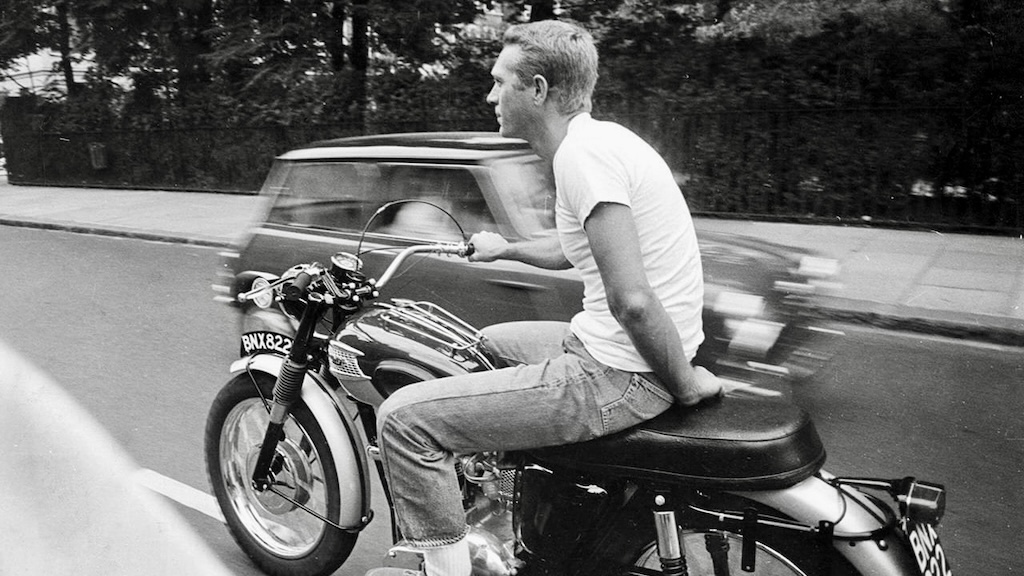
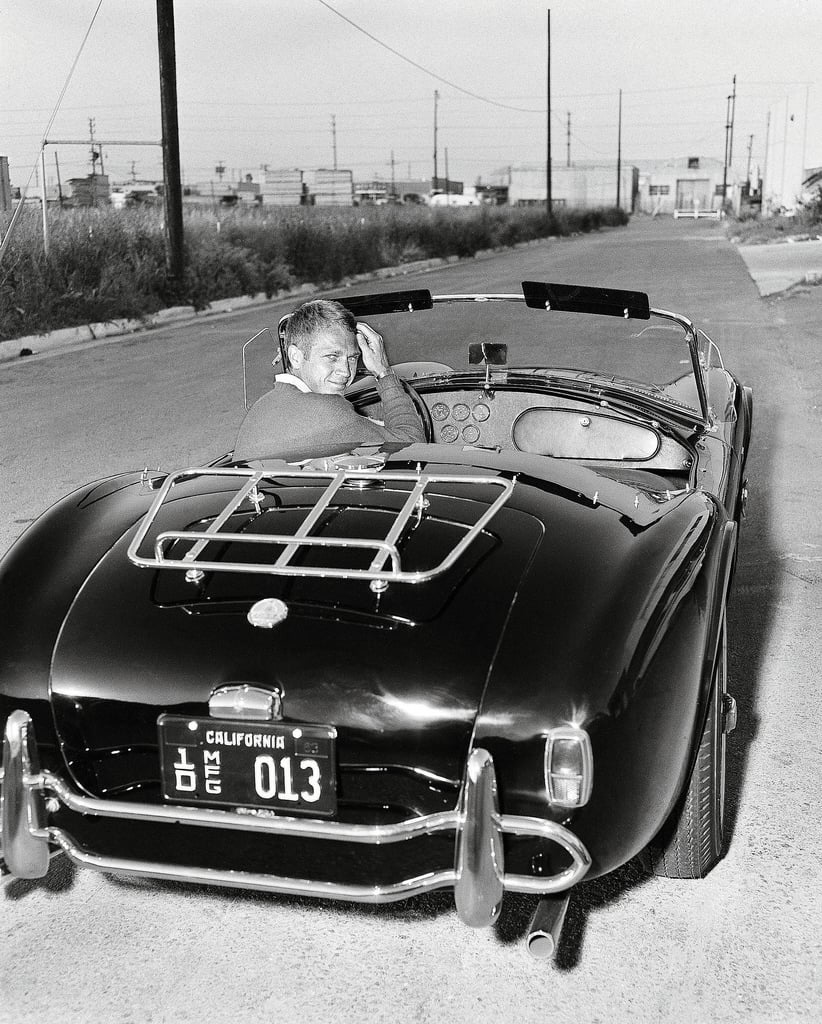
Inside cover: “He made movies best remembered for their wild car chases, mad motorcycle stunts, and wheel-to-wheel racing action, but no one forgets the man at the wheel—Steve McQueen, the King of Cool. McQueens Machines celebrates the deep-seated connection, giving readers a close-up look at the automobiles and motorcycles in McQueens garage, those he drove in movies, and others he raced…from the Corsair-powered Manx dune buggy in The Thomas Crown Affair, from the Triumph motorcycle of The Great Escape, to the Gulf-Porsche 917 he drove at top speed in Le Mans, the cars and bikes the McQueen made famous in films make an encore appliance here.
A very short list of McQueen’s car would include a 1963 Ferrari 250 GT Berlinetta Lusso, 1965 Ferrari 275 NART Spyder, 289 Shelby Cobra, lots of Porsches, lots of race cars, and a ton of motorcycles. Everyone remembers the opening scene from the 1971 movie, Le Mans. The scene shows McQueen pulling up to see the spot he crashed the season before, in his slate gray 1970 Porsche 911S. The 911 was used on the movie set as a camera car to capture the racing action at Le Mans.
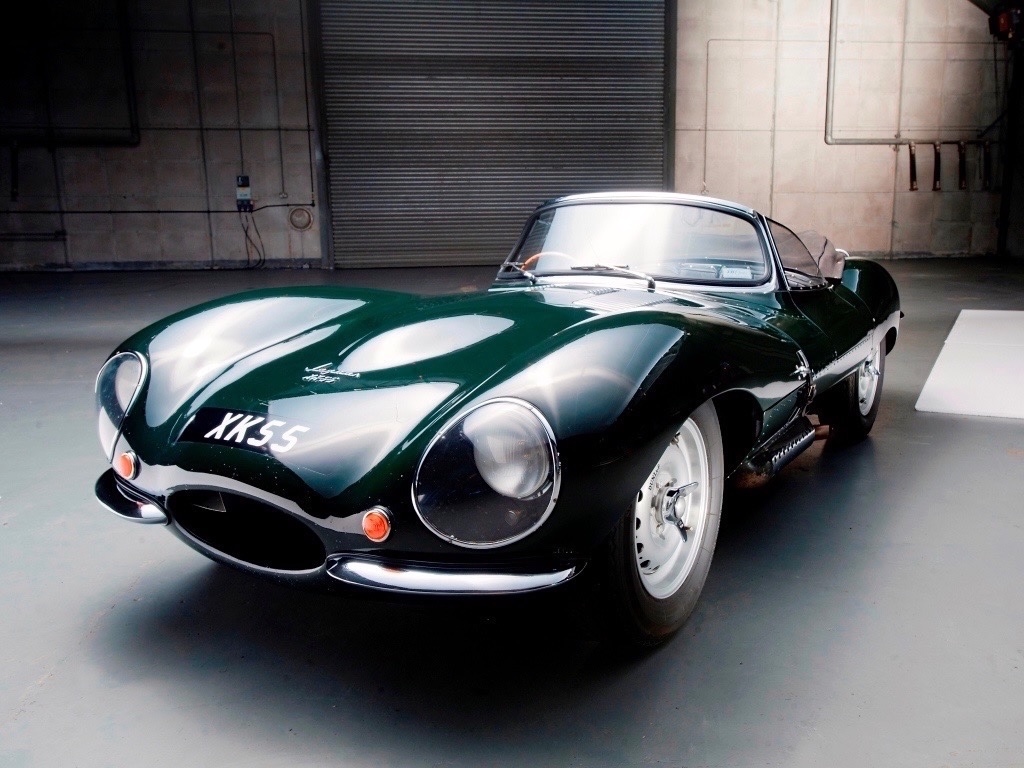
One of my very favorite cars has got to be his Jaguar XKSS, known as the “Green Rat”. There is no mystery to the whereabouts of Steve McQueen’s 1956 Jaguar XKSS, as it currently resides in the Peterson Automotive Museum. The story goes, the car belonged to TV Game show host, Bill Leyden, and McQueen was at the lot when he caught a glimpse of the Jag and fell in love. He bought the car from Leyden for $5,000, which is the steal of the century since there were only 16 ever made.
McQueen loved winding out the Jaguar’s 3.4L inline-six so much that he racked up a number of speeding tickets and almost had his license revoked. McQueen sold the XKSS to a collector in the 1970s, probably for a lot more than 5Gs, but couldn’t shake his affection for the car and bought it back. It remained a part of his collection until his untimely passing.
There are plenty of urban legends around McQueen and the “Green Rat” as his 1957 Jaguar XKSS was infamously called. The story goes that a Los Angeles police department chief had a standing offer of a steak dinner to the first deputy to catch McQueen in the Green Rat and ticket him. The steak was never claimed.
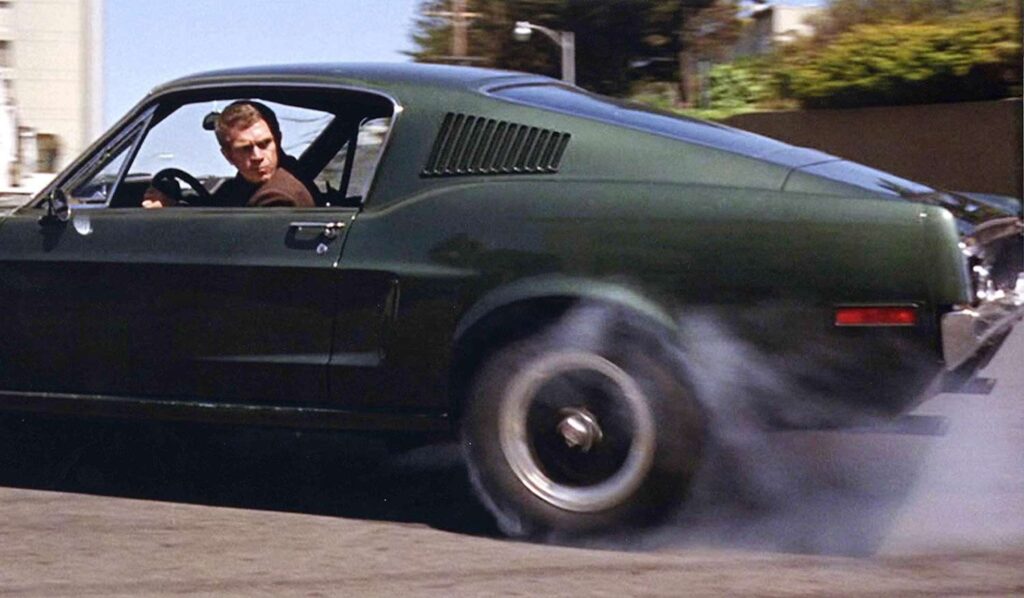
As to the famous Bullitt car, according to Car and Driver, a guy named Bob Kiernan bought the car in 1974 from a classified ad and drove it daily, as movie cars weren’t a big deal back then. McQueen made several attempts to purchase the car from Kiernan, but he wouldn’t sell it. The Mustang stopped running and disappeared for decades, reemerging in 2018. It turns out Kiernan was right to hang onto the Mustang because it eventually sold at auction for $3,740,000.
I’ve always thought of myself as a car guy, but after reading, twice, McQueen’s Machines, I thought better of describing myself in those terms. As a hard-core Steve McQueen fan, and after spending so much time in the theaters watching him drive in every type of action movie, I want to watch them all over again. This book explains why there is still so much fascination with Steve McQueen and his cars. Page after page and photo after photo, chronicling a man who’s motoring legend will never die.
A word of caution, don’t buy the Kindle version as, like the ‘See Spot Run’ children’s books, the pictures are just as important as the text. The hardcover is $38, and should find a prominent spot on your coffee table.

